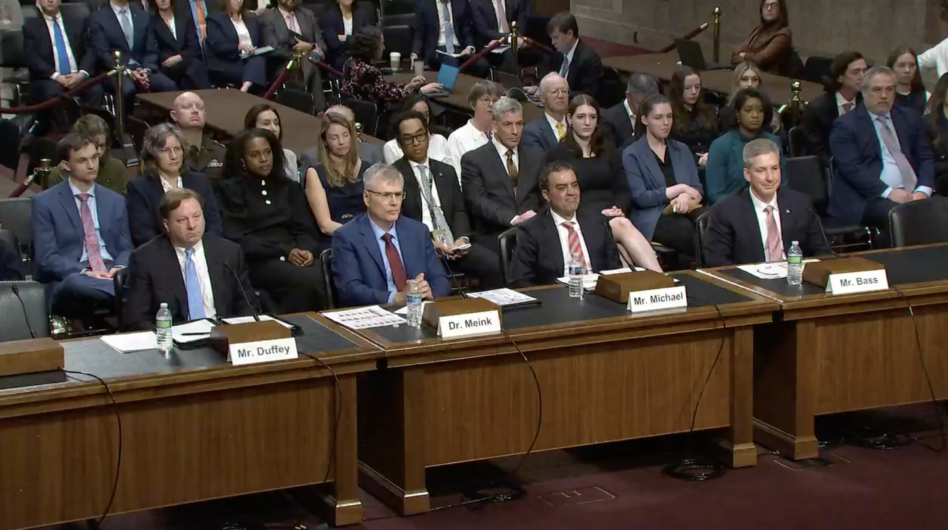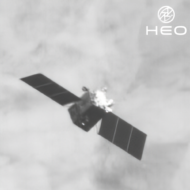Defense acquisitions are too slow to keep up with the needs of the moment. It’s a tale as old as time, and the administration’s new appointees are planning to do something about it.
Troy Meink, President Donald Trump’s nominee for secretary of the Air Force, testified in front of the Senate Armed Service Committee yesterday, where he laid out his plans to increase the pace of innovation in space.
If confirmed, Meink would become the first Air Force secretary with in-depth experience working on US space defense projects, having served five years in the NRO and over a decade as the deputy under secretary of the Air Force for space. That experience shone through in his testimony.
Meink said he would strengthen the Space Force to counter advancements from Russia and China, and do so in lockstep with the defense industry.
“We need to innovate faster. I spent the last decade increasing competition and expanding the industry base, which has significantly accelerated delivery of capability and at a lower cost. I intend to bring that same drive for innovation to the department,” Meink said.
Not alone: During the hearing, Meink was flanked by two other Trump nominees who echoed the DoD’s need to better leverage the commercial sector. Michael Duffey, nominated for acquisitions lead, and Emil Michael, nominated for head of research and engineering, both suggested broad acquisition reforms to bolster the DoD’s capabilities.
“Future conflicts will be won on the factory floor as much as the field of battle,” Duffey said. “We must outpace our adversaries in our ability to supply our military with decisive advantage, while maintaining our ability to focus industrial base capacity to replenish those forces as needed.”
Meanwhile, Emil Michael suggested the DoD focus on funding smaller, innovative companies and cutting red tape to speed up the acquisition process.
What to expect: If confirmed, the nominees will have to toe a fine line between growing their respective departments and aligning with the Trump administration’s drive to reduce federal spending.
“If the US is going to maintain our advantage, which we need to do in space, we need to make sure we have the right workforce. The Space Force is in the process of growing, [and] I will support that activity,” Meink said.
During the hearing, senators did not question Meink’s connection to Elon Musk—who reportedly influenced his nomination in the first place—despite a February Reuters report suggesting that Meink arranged an NRO contract to favor SpaceX during his time with the agency.





